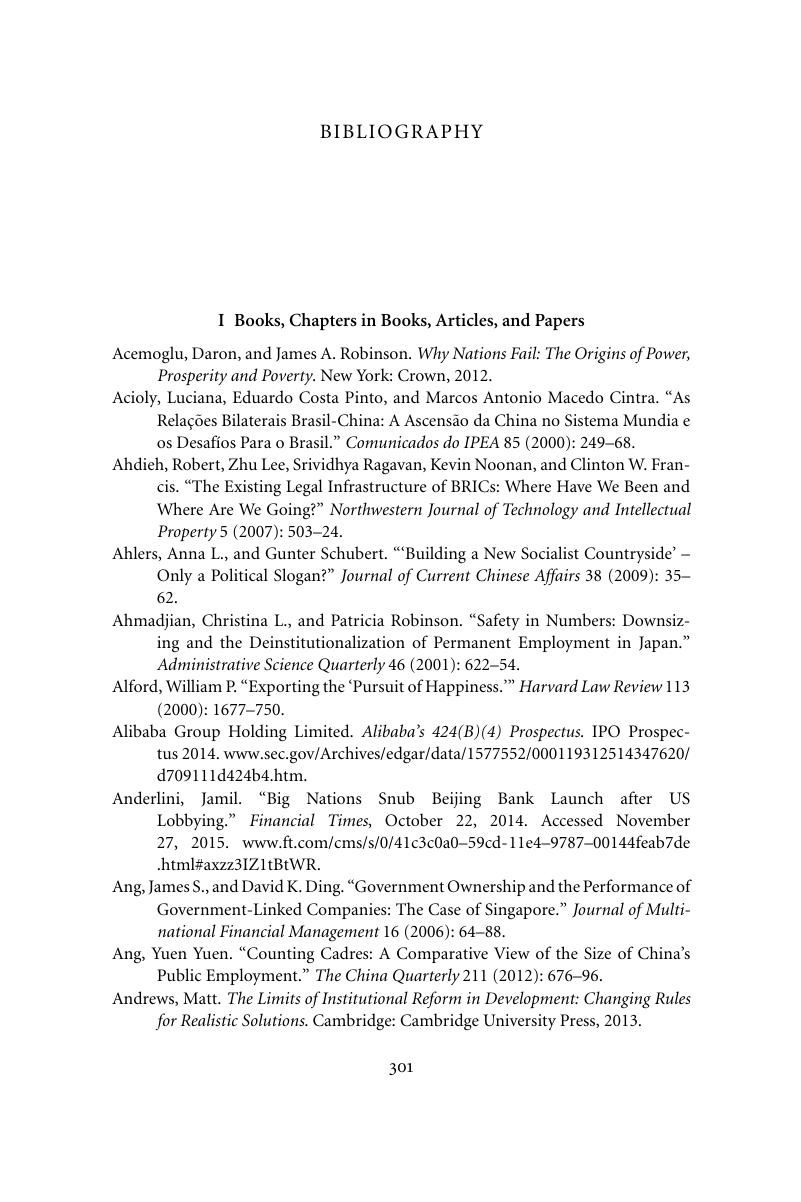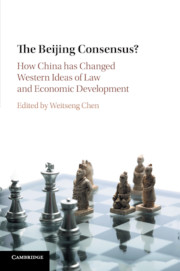Bibliography
Published online by Cambridge University Press: 28 April 2017
Summary

- Type
- Chapter
- Information
- The Beijing Consensus?How China Has Changed Western Ideas of Law and Economic Development, pp. 301 - 339Publisher: Cambridge University PressPrint publication year: 2017

